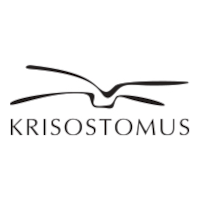-
Apranga, avalynė, aksesuarai
-
Baldai ir namų interjeras
- Virtuvės baldų priedai
- Virtuvinės spintelės
- Virtuvės ir valgomojo kėdės
- Virtuvės ir valgomojo stalai, staliukai
- Virtuvės baldų komplektai
- Valgomojo komplektai
- Virtuvės stalviršiai
- Virtuvės baldų kolekcijos
- Vonios spintelės
- Vonios komplektai
- Vonios veidrodžiai
- Vonios lentynos
- Vonios aksesuarai
- Vonios kambario baldų kolekcijos
- Vaikiškos lovos
- Vaikiški čiužiniai
- Vaikiški sėdmaišiai, foteliai, pufai
- Vaiko kambario baldų komplektai
- Vaikiškos kėdutės ir staliukai
- Vaikiškos lentynos
- Kūdikių lovytės
- Vaikiškos komodos
- Vaikiškos spintos
- Vaikiškos spintelės
- Vaikiški rašomieji stalai
- Vaikiškos mokyklinės kėdės
- Žaislų dėžės
- Vaikų kambario baldų kolekcijos
-
Santechnika, remontas, šildymas
- Oro drėkintuvai
- Meteorologinės stotelės, termometrai
- Oro sausintuvai, drėgmės surinkėjai
- Eteriniai aliejai difuzoriams
- Vonios ventiliatoriai
- Ventiliatoriai
- Oro reguliavimo įrangos priedai
- Oro valytuvai
- Kondicionieriai, šilumos siurbliai, rekuperatoriai
- Mechaniniai įrankiai
- Elektriniai įrankiai
- Įrankių dėžės, laikikliai
- Tvirtinimo detalės
- Sandėliavimo lentynos
- Surenkamos lentynų sistemos
- Buitinės kopėčios, rampos
- Sniego valytuvai
- Sniego kastuvai, stūmikliai
- Metalo detektoriai
- Platforminės svarstyklės
- Aukšto slėgio plovimo įranga
- Stebėjimo kameros
- Signalizacijos
- Apsaugos sistemos, valdikliai
- Durų skambučiai, akutės
- Davikliai, jutikliai
- Dūmų, dujų detektoriai
- Domofonai
- Apsaugos sistemų priedai
- Elektros jungikliai, rozetės
- LED juostos
- Elementai
- Žibintuvėliai, prožektoriai
- Elementų krovikliai
- Prailgintuvai
- Elektros lemputės
- Komponentai saulės jėgainėms
- Laikmačiai, termostatai
- Maitinimo šaltiniai
- Tekstiliniai kabeliai ir elektros kaladėlės
- Įmontuojami šviestuvai, LED panelės
-
Autoprekės
-
Vaikams ir kūdikiams
- Kūdikio priežiūrai
- Maitinimo priemonės
- Prekės mamoms
- Vaikiški vežimėliai ir jų priedai
- Autokėdutės ir jų priedai
- Maniežai vaikams
- Gultukai ir sūpynės
- Kūdikių ir vaikų maistas
- Nešioklės
- Vaikštynės
- Antspaudai kūdikiams
- Čiužiniai kūdikiams
- Sauskelnės
- Kūdikių lovytės
- Patalynė kūdikiams
- Kūdikio kraitelis
- Saugos varteliai, apsaugos
- Drabužiai kūdikiams
-
Kvepalai, kosmetika
- Makiažo pagrindai, pudros
- Bronzantai, skaistalai
- Lūpų dažai, blizgiai, balzamai, vazelinai
- Akių šešėliai, pieštukai, blakstienų tušai, serumai
- Manikiūro, pedikiūro priemonės
- Kosmetinės, veidrodėliai
- Makiažo šepetėliai, kempinėlės
- Priklijuojamos blakstienos, blakstienų rietikliai
- Nagų lakai, stiprintojai
- Antakių dažai, pieštukai
- Veido kremai
- Veido prausikliai, valikliai
- Veido aliejai, serumai
- Veido kaukės, paakių kaukės
- Veido masažuokliai, valymo įrankiai
- Paakių kremai, serumai
-
Buitinė technika ir elektronika
- Virduliai
- Kavos aparatai
- Vandens filtrai
- Gruzdintuvės
- Svarstyklės (virtuvinės)
- Kavamalės
- Trintuvai, smulkintuvai
- Pjaustyklės, peilių galąstuvai
- Kokteilinės
- Vaflinės, el. blynų keptuvės
- Išskirtiniai maisto gaminimo prietaisai
- Garų puodai, daugiafunkciai puodai
- Sulčiaspaudės
- Vakuumatoriai
- Plakikliai
- Sumuštinių keptuvės
- Skrudintuvai
- Griliai, marinatoriai
- Virtuviniai kombainai
- Daigyklos, lempos augalams
- Gazuoto vandens aparatai ir priedai
- Mėsmalės
- Vaisių džiovyklės
- Vandens aparatai
- Duonkepės
- Dulkių siurbliai
- Dulkių siurbliai-robotai
- Dulkių siurbliai-šluotos
- Plaunantys siurbliai
- Svarstyklės (buitinės)
- Garais valantys prietaisai, grindų valytuvai
- Langų valytuvai
- Akumuliatoriai dulkių siurbliams
- Dulkių siurblių priedai
- Meteorologinės stotelės, termometrai
- Masažuokliai
- Manikiūro, pedikiūro aparatai
- Epiliatoriai
- Elektriniai dantų šepetėliai
- Barzdaskutės
- Plaukų formavimo ir tiesinimo prietaisai
- Plaukų džiovintuvai
- Šilumos prekės
- Plaukų kirpimo mašinėlės
- Elektrinių dantų šepetėlių antgaliai
- Irigatoriai
- Kraujospūdžio matuokliai
- Veido priežiūros prietaisai
- Masažinės vonelės
- Inhaliatoriai
- Termometrai
- Ventiliatoriai
- Kondicionieriai, šilumos siurbliai, rekuperatoriai
- Šildytuvai
- Oro drėkintuvai
- Vandens šildytuvai
- Grindų ir veidrodžių šildymo kilimėliai
- Vonios ventiliatoriai
- Dūmų detektoriai
- Oro reguliavimo įrangos priedai
-
Kompiuterinė technika
- Korpusų priedai
- Vidiniai kietieji diskai (HDD, SSD, Hybrid)
- Operatyvioji atmintis (RAM)
- Korpusai
- Valdikliai
- Komponentų priedai
- Maitinimo šaltiniai (PSU)
- Kompiuterių ventiliatoriai
- Pagrindinės plokštės
- Vaizdo plokštės (GPU)
- Procesorių aušintuvai
- Termo pastos
- Procesoriai (CPU)
- Optiniai įrenginiai
- Aušinimas vandeniu - aksesuarai
- Vaizdo plokščių aušintuvai
- TV imtuvai, FM, video plokštės
- Aušinimas vandeniu - rinkiniai
- Garso plokštės
-
Mobilieji telefonai, Foto ir Video
- Telefono dėklai
- Apsauginės plėvelės telefonams
- Priedai telefonams
- Telefono laikikliai
- Mobilieji telefonai
- Krovikliai telefonams
- Laidai telefonams
- Atsarginiai maitinimo šaltiniai (power bank)
- Atminties kortelės telefonams
- Telefonų dalys ir įrankiai jų remontui
- Asmenukių lazdos (selfie sticks)
- Laisvų rankų įranga
- Akumuliatoriai telefonams
- Ausinės
- Priedai fotoaparatams
- Fotografijos apšvietimo įranga
- Skaitmeniniai fotoaparatai
- Dėklai, krepšiai fotoaparatams ir objektyvams
- Atminties kortelės fotoaparatams, kameroms
- Momentiniai fotoaparatai
- Fotoaparato stovai
- Fotoaparatų krovikliai
- Akumuliatoriai fotoaparatams
- Objektyvai
- Filtrai objektyvams
- Įkraunami elementai
-
Sportas, laisvalaikis, turizmas
- Turistinis inventorius
- Gertuvės
- Turistinės ir kelioninės kuprinės
- Palapinės
- Turistiniai čiužiniai ir kilimėliai
- Miegmaišiai
- Turistinio inventoriaus, drabužių ir avalynės priežiūros priemonės
- Pripučiami čiužiniai ir baldai
- Alpinizmo įranga
- Turistiniai baldai
- Biotualetai
- Autoturizmo reikmenys
- Priemonės nuo uodų
- Kuprinės ir krepšiai
- Gimnastikos ir fitneso prekės
- Masažo reikmenys
- Vandens sportas
- Futbolas
- Rankinis
- Rakečių sportas
- Įtvarai
- Krepšinis
- Kovos menai
- Ėjimo lazdos
- Golfas
- Žingsniamačiai, chronometrai, širdies ritmo monitoriai
- Smiginis
- Tinklinis
- Diskgolfas
- Baletas ir meninė gimnastika
- Kamuolių pompos ir adatos
- Jojimo prekės
- Beisbolas
- Grindų ir žolės riedulys
- Dviračiai, riedučiai, riedlentės
- Svoriai, svarmenys, grifai
- Žaidimų stalai
- Treniruokliai, treniruočių įranga
- Kamuoliai
- Aminorūgštys
- Angliavandeniai
- Baltymai
- Batonėliai
- Kiti papildai ir preparatai
- Energetikai
- Funkcinis maistas
- Glutaminas
- Kreatinas
- L-karnitinas
- Papildai ir preparatai masei auginti
- Papildai ir preparatai sąnariams
- Produktai atsistatymui
- Riebalų degintojai
- Papildai ir preparatai lieknėjimui
- Testosterono skatintojai
- Vitaminai
-
Virtuvės, buities, apyvokos prekės
- Virtuvės įrankiai
- Taurės, puodeliai, ąsočiai
- Kepimo indai, popierius, formos
- Indai, lėkštės, pietų servizai
- Maisto saugojimo indai
- Peiliai ir jų priedai
- Puodai, greitpuodžiai
- Keptuvės
- Stalo įrankiai
- Termosai, termopuodeliai
- Kavinukai, virduliai
- Prieskonių indeliai, malūnėliai
- Pjaustymo lentelės
- Prieskoniai, prieskonių rinkiniai
- Konservavimo indai ir priedai
- Gertuvės, termo puodeliai
- Vienkartiniai, teminiai indai
- Vandens filtrai
-
Dovanos, dekoracijos, gėlės
- Kvepalai Jai
- Kosmetika Jai
- Aksesuarai moterims
- Mobilieji telefonai
- Belaidės ausinės
- Kvapų difuzoriai
- Dulkių siurbliai-robotai
- Kavos aparatai
- Išmanieji laikrodžiai, apyrankės
- Gruzdintuvės
- Namų kvapai
- Plaukų formavimo ir tiesinimo prietaisai
- Epiliatoriai
- Plaukų džiovintuvai
- Veido priežiūros prietaisai
- Elektriniai dantų šepetėliai
-
Gyvūnų prekės
- Žaislai šunims
- Dubenėliai, dėžės maistui
- Transportavimo narvai, krepšiai
- Drabužiai šunims
- Guoliai, pagalvėlės
- Sausas maistas šunims
- Priežiūros priemonės gyvūnams
- Kelioniniai reikmenys
- Pavadėliai šunims
- Skanėstai šunims
- Antkakliai, petnešos šunims
- Konservai šunims
- Vitaminai, papildai, antiparazitinės priemonės šunims
- Kosmetinės priemonės gyvūnams
- Dresūros priemonės šunims
- Žaislai katėms
- Sausas maistas katėms
- Draskyklės
- Konservai katėms
- Kačių tualetai
- Kraikas katėms
- Skanėstai katėms
- Vitaminai, papildai, antiparazitinės priemonės katėms
- Pavadėliai, antkakliai, petnešos katėms
- Guoliai, pagalvėlės
- Transportavimo narvai, krepšiai
- Dubenėliai, dėžės maistui
- Kosmetinės priemonės katėms
- Priežiūros priemonės katėms
-
Sodo prekės
- Sodo technikos dalys
- Lapų siurbliai, šakų smulkintuvai, trinkelių valytuvai
- Vejapjovės, žoliapjovės
- Trimeriai (žoliapjovės), krūmapjovės
- Drėgmės, temperatūros, pH, ORP matuokliai
- Gyvatvorių, žolės žirklės
- Karučiai
- Žoliapjovės, vejos robotai
- Malkų skaldyklės
- Aeratoriai, kultivatoriai
- Sodo traktoriukai
- Žemės grąžtai
- Šlavimo mašinos
-
Apsauginės, dezinfekcinės, medicininės prekės
- Kaukės, respiratoriai
- Apsauginės sienelės, dezinfekcinės stotelės
- Dezinfekcinis skystis
- Vienkartinės pirštinės
- Dezinfekciniai valikliai
- Apsauginiai skydeliai ir akiniai
-
Knygos
-
n18.lt specializuota parduotuvė
n18.lt specializuota parduotuvė suaugusiems
Prekes suaugusiems specializuotoje internetinėje parduotuvėje n18.lt gali matyti tik lankytojai, kurie yra ne jaunesni nei 18 metų. Šioje svetainėje skleidžiama informacija gali daryti neigiamą poveikį asmenims iki 18 metų.Peržiūrėti prekes - Maisto prekės
-
Išmanūs namai
- Išparduotuvė
-
Biurui, mokyklai, kūrybai
Rodyti daugiau kategorijų
 Didysis sandėlio valymas! Kainų pasiūlymai net iki -50%*!
Didysis sandėlio valymas! Kainų pasiūlymai net iki -50%*! 





